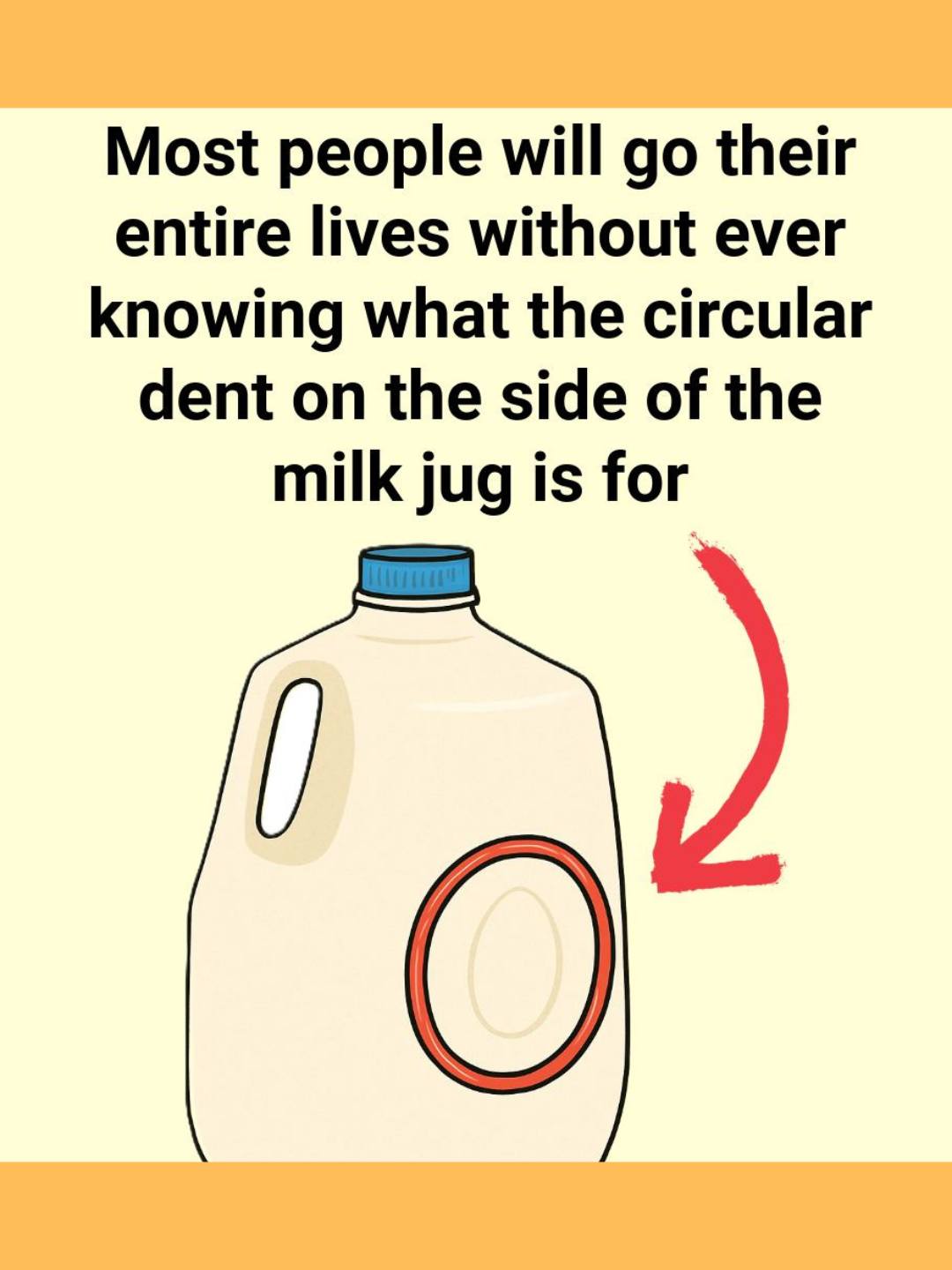Here’s where it gets clever.
The dent isn’t just functional — it’s structural.
By creating a curved indentation, the jug’s side becomes more rigid — like how an arch supports a bridge or a corrugated cardboard panel resists bending.
This means:
The jug uses less plastic
It’s lighter (saving fuel in transport)
It’s cheaper to make
And yet, it’s stronger than a flat panel
It’s smart design on a budget — using physics instead of plastic.
4. Spoilage Warning – Nature’s Early Alert System
This one’s wild — but true.
As milk begins to spoil, bacteria multiply and produce gases — like carbon dioxide.
These gases build up pressure inside the sealed jug.
And guess what happens?
The dented circle starts to pop outward.
It’s not a guaranteed test — not every bulging dent means bad milk.
But if you pick up a jug and notice:
The dent is pushed out
The jug feels hard or swollen
The milk smells sour
That’s your milk saying:
“I’ve turned. Don’t pour me.”
It’s not a high-tech sensor.
It’s not a label.
It’s a passive spoilage indicator — built right into the design.
And it’s kind of genius.
Final Thoughts: Sometimes the Most Important Features Are the Ones You Never Notice
We marvel at smartphones, electric cars, and AI.
But some of the most brilliant innovations are hiding in plain sight.
Like the circular dent on a milk jug.
It’s not flashy.
It doesn’t beep.
It doesn’t connect to Wi-Fi.
But it:
Prevents explosions
Stops spills
Saves plastic
Warns you when milk is bad
All with a simple curve in the plastic.
SEE NEXT PAGE
ADVERTISEMENT

